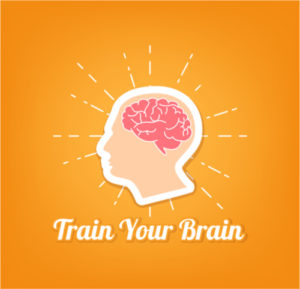 Exam day is often associated with anxiety. Whether the thought of taking the EPPP evokes negative emotions from test taking in your school days or more recent graduate school days, the anxiety can impact your EPPP test score.
Exam day is often associated with anxiety. Whether the thought of taking the EPPP evokes negative emotions from test taking in your school days or more recent graduate school days, the anxiety can impact your EPPP test score.
Confidence on exam day is key to succeeding. So, how do you combat test anxiety and replace it with confidence?
Begin by understanding why the thought of test taking evokes anxiety.
Neurologically, due to your past experiences of anxiety during exams, the mere thought of test taking now ignites the feeling of anxiety in your brain’s cingulate gyrus, which is located deep in the cortex. Your brain has made an association between test taking and anxiety. Therefore, the two have been “wired” together in your brain and anxiety is now a habitual response to the thought of test taking.
To replace anxiety with confidence on exam day, your brain has some rewiring to do. Thankfully, due to the brain’s remarkable plasticity, certain associations can be reversed.
Throughout the Taylor Study Method process, you will take roughly 4,000 questions before EPPP exam day. If, during those practice questions, you stimulate the conditions of a test within the safe and relaxed environment of the TSM study process, your brain can begin to associate testing with relaxation or calmness.
In a way, TSM is providing you with 4,000 moments for your brain to adopt the habit of relaxing during an exam.
During these moments, you can actively practice desensitizing yourself to anxiety by going through stress relief strategies. To combat stress as it arises you might do a power stance, express gratitude, or focus on breathing. The more you practice stress-relief techniques and learn to relax during mock exam questions, the more your brain will remain calm at the thought of test taking.
Ultimately, by the end of the TSM study process, you will be capable of replicating your relaxed state throughout the actual EPPP exam.
And, as if reducing anxiety isn’t enough, taking 4,000 test questions before the exam has multiple benefits. Frequent testing improves memory and reinforces the information you will need to pass the EPPP. Practice tests can also reflect how well you understand the material before you take the test, so they can be an indicator of when you are ready to sit the exam.
The consequence of habitual relaxation during test taking, paired with increased memory and a surety that you’re ready, is confidence. And confidence during exam day is crucial to a passing score.
Are you interested in allowing our 4,000 test questions to help you combat test anxiety and pass the EPPP? Find out the many ways TSM can support you specifically to pass the EPPP.
For more information on how TSM can help you prepare confidently for your exam, call us at 877-510-5445.
Further Reading
- 3 Myths About Test Anxiety
- Relieving the Stress of EPPP Study
- The Best Way to Approach Practice Tests
- Use Gratitude to Detox Your Brain




